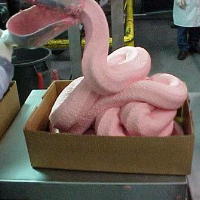SGU Episode 334
| This episode needs: transcription, time stamps, formatting, links, 'Today I Learned' list, categories, segment redirects. Please help out by contributing! |
How to Contribute |
| SGU Episode 334 |
|---|
| December 10th 2011 |
 |
| (brief caption for the episode icon) |
| Skeptical Rogues |
| S: Steven Novella |
B: Bob Novella |
R: Rebecca Watson |
J: Jay Novella |
E: Evan Bernstein |
| Quote of the Week |
'The scientific method consists of the use of procedures designed to show not that our predictions and hypotheses are right, but that they might be wrong. Scientific reasoning is useful to anyone in any job because it makes us face the possibility, even the dire reality, that we were mistaken. It forces us to confront our self-justifications and put them on public display for others to puncture. At its core, therefore, science is a form of arrogance control.' - |
'Mistakes were made (but not by me)', by social psychologists Carol Tavris and Elliot Aronson |
| Links |
| Download Podcast |
| Show Notes |
| SGU Forum |
Introduction
You're listening to the Skeptics' Guide to the Universe, your escape to reality.
This Day in Skepticism ()
- December 10 1901: The first Nobel Prizes are awarded. Dec 10th is Alfred Nobel Day or Nobeldagen, presentation ceremony of the Nobel Prize.
News Items ()
Kevin Trudeau Fine Upheld ()
Planetary Probes ()
Cloning a Mammoth ()
Kepler 22b ()
Who's That Noisy ()
- Answer to last week: Joe Rogan
Questions and Emails ()
Corrections from Last Week ()
Pumping oxygen into casinos Mechanically separated meat
Interview with Lawrence Krauss ()
Science or Fiction ()
Item #1: Contrary to popular belief, yawning has been shown to have an arousing, rather than sleep inducing, effect. Item #2: A large study of yawning finds that yawns are significantly more contagious from family members and friends than acquaintances or strangers. Item #3: Yawning has been observed in every class of vertebrates.
Skeptical Quote of the Week ()
'The scientific method consists of the use of procedures designed to show not that our predictions and hypotheses are right, but that they might be wrong. Scientific reasoning is useful to anyone in any job because it makes us face the possibility, even the dire reality, that we were mistaken. It forces us to confront our self-justifications and put them on public display for others to puncture. At its core, therefore, science is a form of arrogance control.' 'Mistakes were made (but not by me)', by social psychologists Carol Tavris and Elliot Aronson - Carol Tavris
References

|